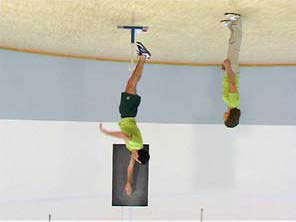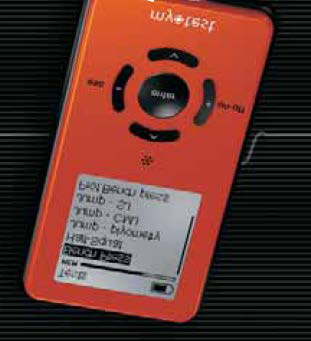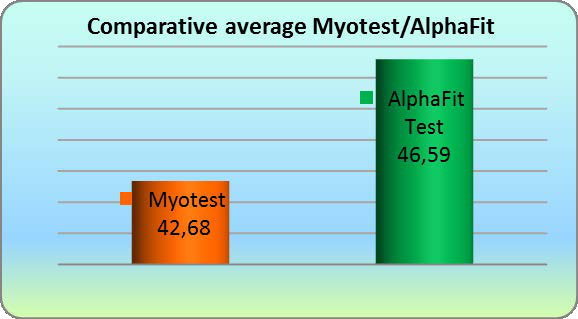Abstract
Human development was permanently conditioned and achieved by physical motion. Physical fitness together with cardiorespiratory fitness highlights the development level of the physical capacity of the human being. The explosive force (the detent) is a basic parameter that emphasizes the physical fitness level. The present study proposes to make a comparative analysis on the measurement of the lower limbs explosive force by two different methods: a classical method (the Alpha Fit test) and a modern method (the Myotest device). The Myotest device does not calculate and does not measure only the muscle performance, but it is a tool for improvement and analysis, whose purpose is to optimize the sports performance. The Alpha Fit test, conducted by direct recording with the metric strip, is based on measuring of the height jump. This paper aims at highlighting the most accurate method of measuring the detent. The modern methods of measurement, by means of the devices used, confer a special fidelity of the measured parameters, these being more successful than the classical methods of measuring the detent. The study subjects are represented by male and female students from the University Polytechnic of Bucharest. As a result of the analysis and of correlating the parameters registered between the two methods of measuring the explosive force at the lower limbs level (the Alpha Fit and the Myotest), there was found that there is a significant difference between the classical testing method (the Alpha Fit) and the modern method (the Myotest).
Keywords: Lower limbs forceAlpha FitMyotest device
Introduction
This study presentsa tool for the evaluation of some basic physical capacities necessary to
evaluation athlete sports performance in two methods comparative, first it is by using device Myotest
Pro and the Alpha Fit Test. Myotest Pro it is device who calculates power, force, speed, as well as
strength under speed conditions, a tridimensional accelerometer. The Alpha Fit Test, conducted by
direct recording with the metric strip, is based on measuring of the height jump Structure.
Material and Methods
2.1.Research Purpose
The purpose of this paper is to make a comparative analysis on the measurement of the lower limb
explosive force, by applying two methods: the Alpha Fit Test (a classical method) and the Myotest
device (a modern method).
This paper aims to highlight the most accurate method of measuring detent. The modern methods of
measurement, due the devices used, confer a special fidelity to the measured parameters, and thus these
being more successful than the classical methods for measuring detent.
2.2.Working Hypothesis
Using the Myotest in measuring the detent, the results obtained will be more accurate than those
obtained by means of the APLPHAFIT test, eliminating measurement errors.
2.3.Subjects
The sample volume is designed for 162 subjects aged between 19 and 20 years old, students of the
University Polytechnic of Bucharest
During the research there were investigated 162 female and male students, from the University
Polytechnic of Bucharest namely from the faculties of Electrical Engineering, Technological Systems
Engineering and Management, Automatic Control and Computer Science, Mechanics and Mechatronics, The Science and Engineering of the Environment, from the 1st year of study, aged between 19 and 20 years old.
The sample type is randomized, because we used the randomized selection technique. In the psycho-pedagogic/methodical researches, where subjects cannot be selected without the risk of rendering incomplete the number of students in a group, we have to use, for our experimental and control groups, subjects from parallel groups, by considering that the “chance” factor acted when initially composing them.
The period during which the research took place lasted between 1.10.2015 – 8.12.2015.
2.4.The Research Methods
The research methods we used were the following: the bibliographical study method, the
experimental method, the statistical method, the graphical method. This research is an ascertaining one
and aims to establish the accuracy of the height jump measurement made by means of the two methods
described above.
We used in our research a significance level of p = 0.05, to see the reliability level of the arithmetic
mean, at a risk of 5%.
The numerical data processing and interpretation aimed at emphasizing the studied phenomenon
over the measurement period. The significant statistical difference among the means was performed by
means of the “Student” significance tests (independent and dependent t). In the present research, we
used the significance threshold of p = 0.05, in order to determine the arithmetical mean reliability at a
5% risk. If the reliability level is 5%, we shall have 95% chances to find the real arithmetical mean of
the general collectivity within the determined reliability limits.
2.5.Description of Ascertaining Experiment
This is made by two different methods: a classical method (the Alpha Fit Test- Suni, et. al., 2010)
and a modern one (the Myotest device).
The measurement of the explosive force of the lower limbs by means of the ALPHAFIT test (Fig.1)
is made by applying the high jump test on the spot. The materials used to perform this test are the
following: vertical plate for measuring the difference between the initial position set before the jump andthe final one, made after the jump;a container with powdered chalk for marking the signs on the vertical initial plate at the initialand final position;metric tape divided into centimeters to measure the difference between the initial and finalposition of the test;sponge for cleaning signs left by the previous subjects.

The purpose of the test is to perform a jump as high as possible. The testing is made in the
following way: the subject touches the chalk dust from the container with the middle finger of the hand thatwill be placed onto the vertical plate;the subject is placed laterally from the vertical measurement plate, the arm on the plate sidestretched upwards and there is marked with chalk the highest position attainable with themiddle finger, this being the initial position;the subject performs a slight bending of the knees and jumps vertically aided by the armsmomentum, touching with the chalk- marked finger the highest point achieved during thejump, which is the final position of the jump;there is measured the vertical distance between the chalk mark made in the initial position andthe one marked on the vertical plate in the final position;the test involves a leap of control and two jumps that will be measured at full capacity. Out ofthe two trials there will be taken into consideration the highest jump achieved.
A second test was done by means of the MYOTEST PRO device (Fig. 2), which calculates the power, speed, and also the force under speed through a tridimensional accelerometer. The sensor can detect the acceleration during movement. The information obtained is transferred to a computer via a USB connection.

Cordun M. (2009, pp. 211-213) states that Myotest Pro does not only calculate and not only measures the muscle performance, but it is a tool for improvement and analysis and aims to optimize sports performance. It can store information from several athletes, allowing the comparison of the results and graphical data presentation.
The sensor can detect the acceleration during movement execution.
In the present study the MYOTEST device used the JUMP-CMJ test (www.myotest.com).
The test objective:
•To measure vertical jump height;
•To perform five repetitions with the aim of selecting the best result
Using the test includes:
•Start the test by pressing the on / off until the logo appears.
Select the jump test, jump- CMJ and check if the body weight and gender are recordedcorrectly.
•The Myotest device is mounted on the belt Myotest and the "Enter" button is pressed.
•The tested subject starting position: standing with the legs bent and shoulder-width apart, eyesfacing forward.
•At the beep produced by Myotest device, there is performed a semigenuflexion followed by ajump, as high as possible.
•After landing one returns to one’s original position waiting for the next signal.
At the double beep after five repetitions, the test ends.
Results Analysis and Interpretation
After the jump height measurement using the Myotest device there was found that the difference
between the best and worst jump performed by a subject is on average of 0,08cm. After the
measurement made with the Alpha Fit test, the difference between the two jumps was on average of
0,7cm. From this finding their results that the measurement performed with the Myotest has lower
deviations than that made with the Alpha Fit. The difference between the two averages proved to be
significant (Table
0.001, which confirms the hypothesis which was advanced.

Conclusions
The modern methods of measurement, due to the devices used, confer a special fidelity to the
measured parameters, these being more successful than the classical methods for measuring detent. Following the analysis and the correlation of the recorded parameters between the two methods of
measurement of the explosive strength of the lower limbs (the Alpha Fit test and the Myotest device),
there was found that there is a significant difference between the test performed by means of the
classical method (Alpha Fit) and the modern method (the Myotest device).
Thus, using the Myotest for the detent measurement, the results obtained are more accurate than
those obtained by means of the Alpha Fit test, thus eliminating the measurement errors.
References
- Cordun, M. (2009). Kinantropometrie. Bucureşti: Editura CD Press.
- Suni, J., Husu, P., Rinne, M. (2010). Fitness for Health: The ALPHA-FIT Test Battery for Adults Aged 18-69 Tester’s Manual. Published by European Union, DG SANCO, and the UKK Institute for Health Promotion Research, Tampere, FINLAND.
- http://downloads.myotest.com/documents/pro-en.pdf
Copyright information

This work is licensed under a Creative Commons Attribution-NonCommercial-NoDerivatives 4.0 International License.
About this article
Publication Date
04 October 2016
Article Doi
eBook ISBN
978-1-80296-014-3
Publisher
Future Academy
Volume
15
Print ISBN (optional)
-
Edition Number
1st Edition
Pages
1-1115
Subjects
Communication, communication studies, social interaction, moral purpose of education, social purpose of education
Cite this article as:
Pricop, A., Leonte, N., & Popescu, O. (2016). Comparative Study on the Lower Limbs Explosive Force Measurement by Classical and Modern Methods. In A. Sandu, T. Ciulei, & A. Frunza (Eds.), Logos Universality Mentality Education Novelty, vol 15. European Proceedings of Social and Behavioural Sciences (pp. 792-797). Future Academy. https://doi.org/10.15405/epsbs.2016.09.100

